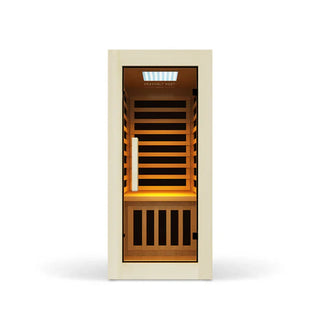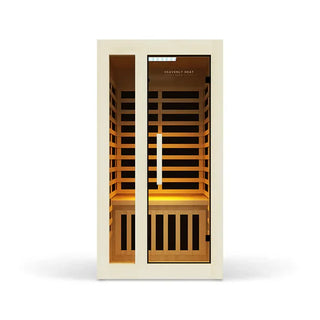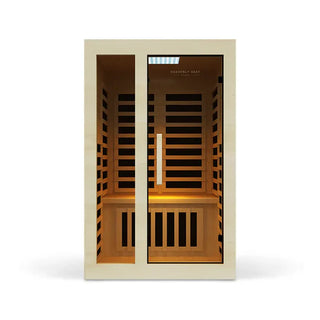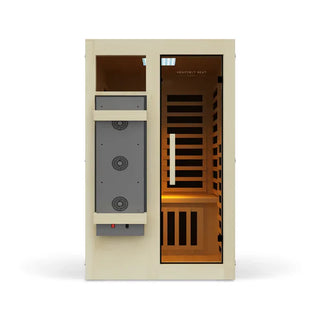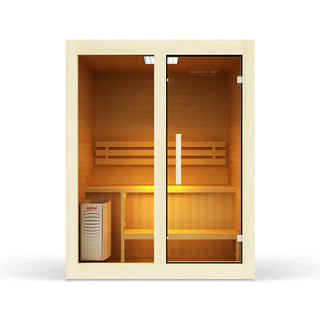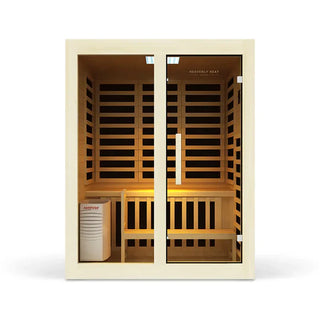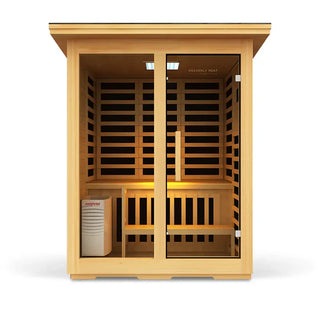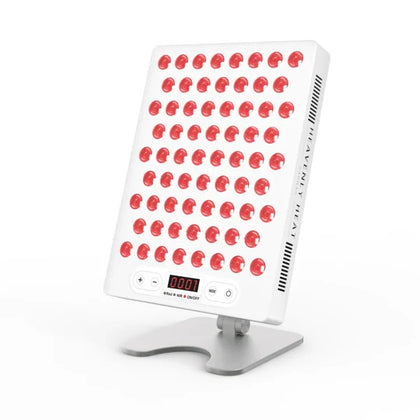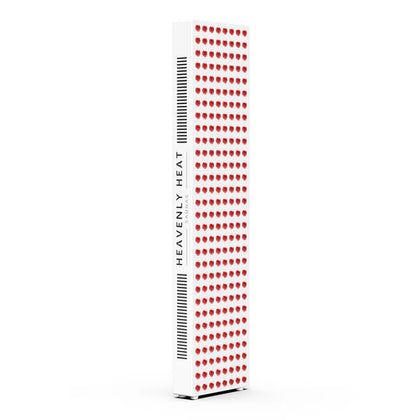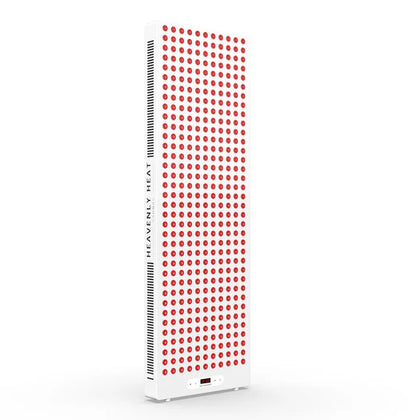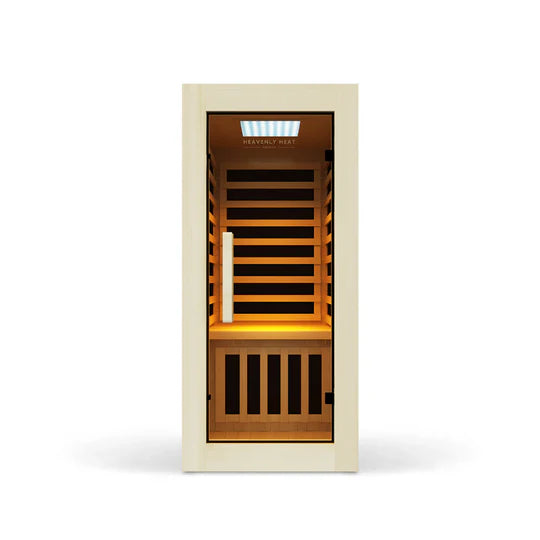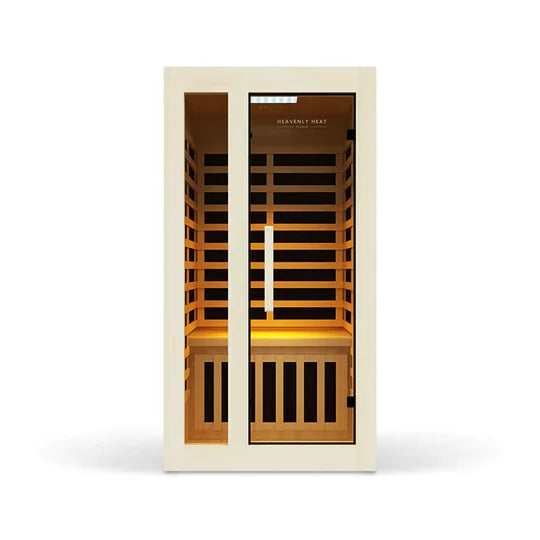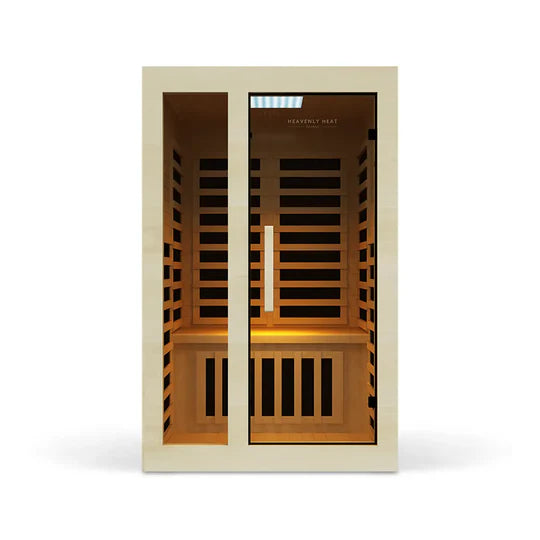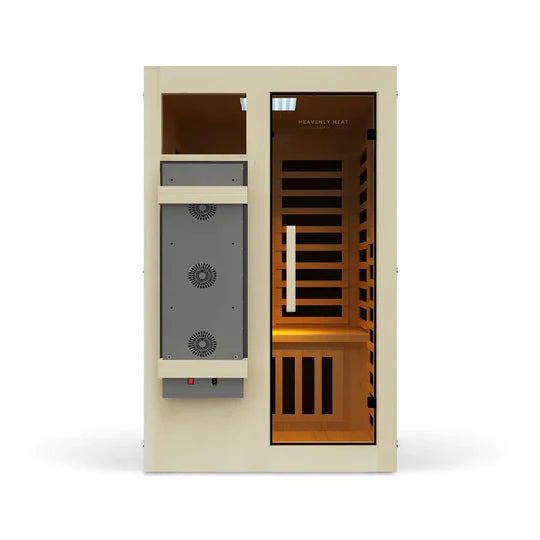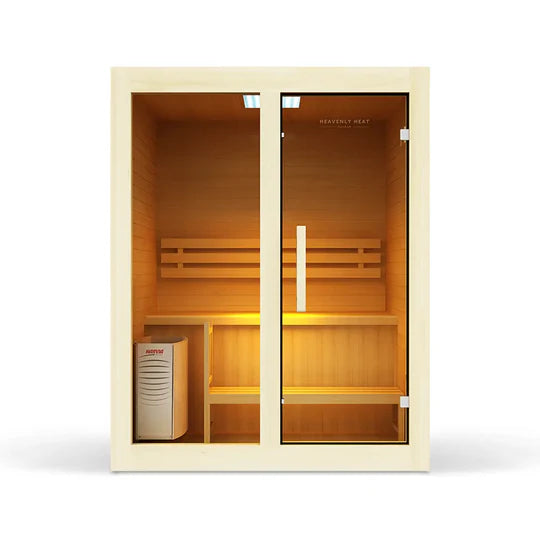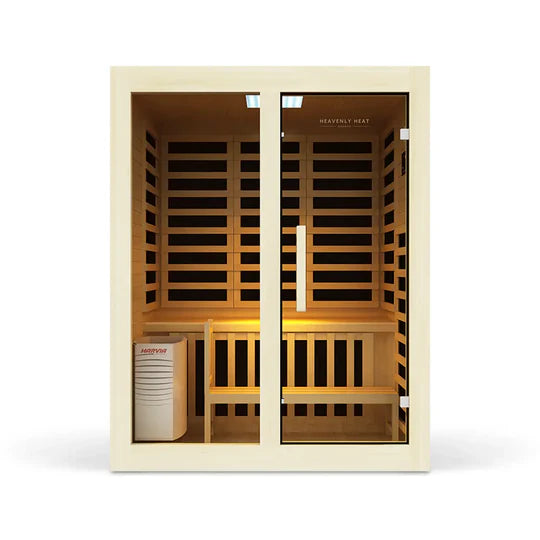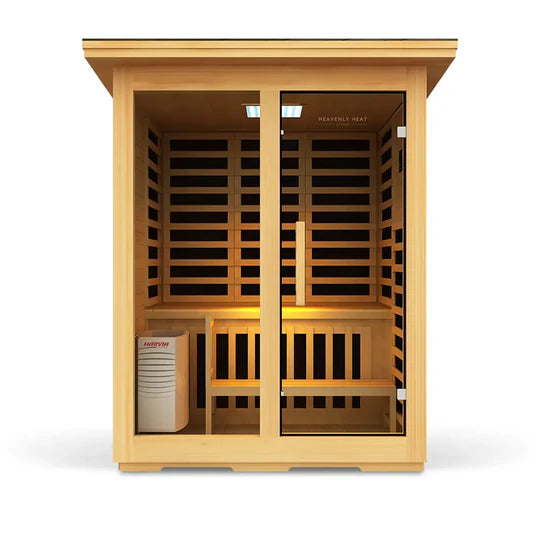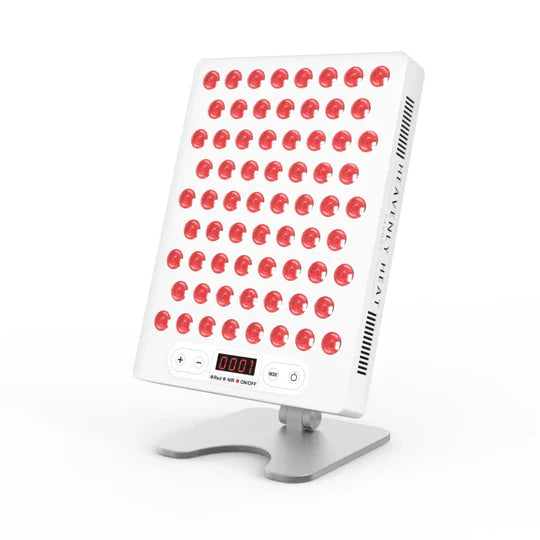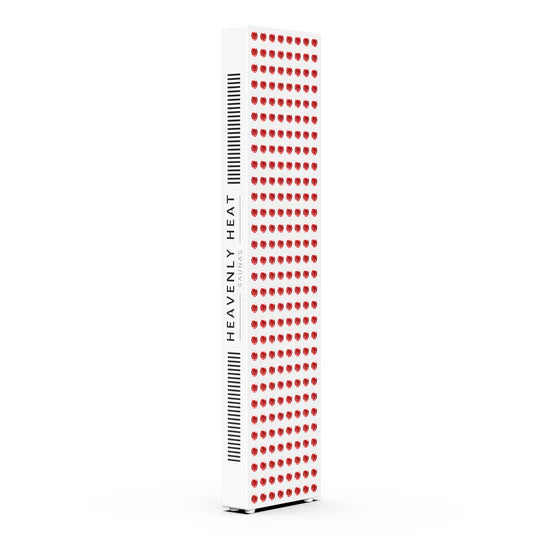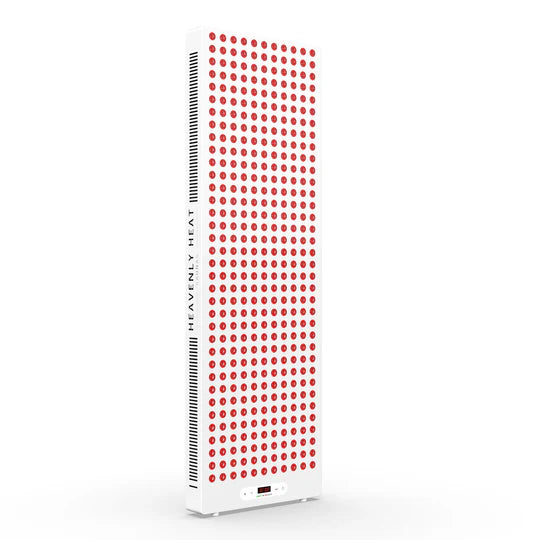Why is it Hard to Breathe in a Sauna?

Breathing in a sauna can be surprisingly challenging due to the heat and humidity. As your body tries to adjust, you may feel short of breath or find it hard to take a deep breath.
This article explores why breathing becomes difficult in a sauna and offers tips to make your experience more comfortable. Keep reading to learn more!
Table of contents
Key Takeaways
High heat and humidity in saunas can make breathing feel more difficult.
Lower oxygen levels and poor ventilation contribute to respiratory strain.
Dehydration and dry airways worsen breathing challenges in a sauna.
Sudden temperature changes and tight clothing can restrict airflow and cause discomfort.
Breathing exercises, hydration, and immediate exit can help alleviate breathing difficulties.
Why is it Hard to Breathe in a Sauna?
High Heat & Humidity Increase Breathing Difficulty
- Breathing gets harder when the air is too hot: Inside a sauna, the high temperature makes your airways smaller. That means your lungs have to work extra just to pull in air, which makes breathing feel more difficult.
- Hot and wet air feels heavier in your chest: The humid air in a sauna is not just warm it's moist. That moisture makes the air feel thick, and your lungs need more effort to take it in.
- Your body needs more oxygen but can’t get enough: When it’s hot, your body uses more energy to stay cool. This increases your need for oxygen, but with tight airways and heavy air, you can’t breathe deeply enough, making you feel out of breath.
- People with breathing problems feel it even more: If you already have asthma or any lung issue, saunas can be risky. The heat and humidity make your symptoms worse and can cause shortness of breath very quickly.
Lower Oxygen Levels in a Sauna
In a sauna, the heat affects the amount of oxygen available in the air. As temperatures rise, the air becomes less dense, which means the oxygen levels drop .
This makes it feel harder to catch your breath in such a hot environment. The lack of ventilation, especially in smaller saunas, contributes to lower oxygen levels .
The limited airflow in a sauna creates an atmosphere where it’s not easy to take a deep, satisfying breath.
Dehydration & Dry Airways Make Breathing Harder
- Dehydration in a sauna makes breathing feel heavier: When you sweat in a sauna, your body loses a lot of water. This leads to dehydration, which dries out your throat and airways. As a result, it becomes harder to take deep, comfortable breaths.
- Dry air in the sauna removes moisture from your throat: The heat in a sauna is dry, not humid. This dry air strips away the natural moisture from your airways. When your throat dries out, it feels scratchy, and breathing can start to feel rough and uncomfortable.
- When your throat gets dry, coughing makes it worse: Dryness in the throat can trigger coughing. This adds to the struggle of breathing easily and makes you feel more uncomfortable inside the sauna.
Elevated Body Temperature Strains Breathing
The heat in a sauna increases your body temperature, which in turn affects your breathing . When your body gets too hot, it needs more oxygen to cool itself down.
The higher your body temperature rises, the harder it becomes to take deep breaths . Your respiratory system works overtime to help regulate your temperature , leading to a feeling of shortness of breath.
Breathing Strain from Sudden Temperature Changes
Entering a hot sauna creates a shock to your respiratory system. The sudden temperature change forces your body to adapt quickly, making it harder to breathe at first .
The heat causes your airways to constrict, making each breath feel more effortful. This can result in a sensation of tightness in the chest, especially when your body adjusts to the heat.
Poor Airflow Restricts Breathing in a Sauna
- When Air Doesn’t Move, Breathing Feels Heavy: In a sauna with poor airflow, the air becomes stale and low in oxygen. This makes each breath feel heavier and more difficult, especially as the heat rises.
- Hot Air Gets Trapped and Makes Breathing Worse: Without good ventilation, the heat keeps building up inside the sauna. This trapped heat makes the space feel suffocating and increases the struggle to breathe deeply.
How Breathing Exercises Can Improve Comfort in a Sauna?
- Deep Breathing Helps Your Body Handle the Heat: Deep, slow breathing brings in more oxygen and helps your body handle the heat, making you feel more comfortable in the sauna.
- Rhythmic Breathing Keeps You Calm and Focused: Using rhythmic breathing (like inhale for 4 seconds, hold for 7, exhale for 8) keeps you calm and focused, reducing discomfort from the sauna's heat.
- Stress-Relief Breathing Techniques Keep You Relaxed: Techniques like belly breathing or box breathing reduce stress, helping you feel more relaxed and comfortable during your sauna session.
What to Do If You Experience Breathing Difficulties in a Sauna?
Stay Calm to Prevent Anxiety from Worsening Your Breathing Difficulty.
When you feel like you can’t breathe properly, anxiety can worsen the situation. Staying calm helps keep your heart rate steady and allows you to focus on managing your breath.
Anxiety increases your heart rate and tightens your chest, making it harder to breathe. Close your eyes, count your breaths, and inhale deeply through your nose to calm down.
Exit the Sauna Immediately to Avoid Further Respiratory Strain.
- Exit the Sauna Immediately to Avoid Further Respiratory Strain: If you begin to feel breathless, leave the sauna. The heat can worsen breathing problems, and staying inside can cause more harm. Stepping outside for fresh air can make a big difference.
- Leave Quickly if Your Breathing Becomes Fast or Shallow: Recognizing the difference between normal sauna discomfort and serious issues is crucial. If your breathing becomes fast or shallow, leave the sauna quickly to prevent oxygen deprivation, which can lead to confusion and breathing difficulties.
Sit Down and Breathe Slowly to Help Calm Your Breathing.
If you're struggling to breathe, sitting down helps you focus on controlling your breath. It reduces pressure on your body and helps regulate your breathing rhythm.
Sitting up rather than lying down is best for maintaining an open airway , the clear path that lets air move freely to and from your lungs , and calming your body .
Hydrate to Replenish Fluids Lost and Aid Your Recovery.
After a sauna session, your body loses fluids through sweat , so staying hydrated is crucial for recovery.
Dehydration can cause dizziness or worsen breathing difficulties . Drink plenty of water and electrolyte drinks , which contain essential salts that help restore fluid balance and energy. Proper hydration helps prevent issues like headaches and fatigue after sauna use.
Loosen Tight Clothing to Improve Airflow and Reduce Chest Pressure.
Tight clothing can restrict your ability to breathe in a sauna. If your clothing is constricting, especially around your chest, it can limit your lung expansion.
Loosening your clothes improves airflow and makes it easier to breathe. Wearing loose, breathable fabrics can prevent this problem in the first place.
Seek Medical Help If Symptoms Persist or Your Condition Worsens.
If your breathing difficulties continue or worsen, it’s important to get medical attention. If you feel dizzy, faint, or experience chest pain, don't ignore it.
These could indicate a more serious problem. If you’re struggling to breathe, it’s better to seek help immediately rather than wait.
Avoid Saunas in the Future if You Have Respiratory Health Issues.
- Saunas Can Be Harmful for People with Breathing Problems: If you have asthma, COPD, or any lung disease, saunas might not be safe for you. The heat and humidity can worsen breathing problems, putting extra strain on your lungs and potentially triggering an asthma attack.
- It’s Safer to Skip Saunas If You Have Respiratory Conditions: For individuals with respiratory conditions, avoiding saunas entirely is the best choice. Always consult with your doctor before using a sauna and follow necessary precautions to protect your health.

When to Seek Medical Help for Breathing Issues After Sauna Use?
If you experience difficulty breathing after using a sauna, pay attention to your symptoms.
Shortness of breath, chest tightness, or wheezing could indicate a more serious issue. If these symptoms persist or worsen, it’s time to seek medical help.
Some warning signs of a medical emergency include dizziness, fainting, or severe chest pain. In such cases, immediately call for medical assistance.
How to Safely Use a Sauna if You Have Breathing Issues?
- Consult Your Doctor Before Sauna Use: If you have breathing issues, always consult your doctor before using a sauna, especially if you have a respiratory condition.
- Set a Safe Temperature and Limit Time: Adjust the sauna temperature to a moderate level (150°F - 170°F) and limit your time inside to 10-15 minutes to prevent strain on your breathing.
- Avoid High Humidity and Extreme Heat: Steer clear of high humidity and extreme heat in the sauna, as they can make it more difficult to breathe, especially if you have a respiratory condition.
- Prepare with Breathing Exercises: Consider doing breathing exercises before entering the sauna to help your body adjust and prepare for the heat.
FAQs
How does the altitude of a sauna location affect breathing comfort?
At higher altitudes, the air is thinner, meaning it contains less oxygen. This makes breathing harder, especially in a sauna. The body struggles to get enough oxygen, and the heat feels more intense because your body can’t cool down as efficiently.
Does the type of sauna (traditional vs. infrared) affect breathing difficulty?
Traditional saunas tend to have high humidity, which can make the air feel thicker and harder to breathe. In contrast, infrared saunas are dry with lower humidity, which may be more comfortable for people with respiratory conditions. The heat in infrared saunas penetrates the body directly without affecting the air quality as much, making it easier to breathe.
Can using essential oils or fragrances in the sauna worsen breathing difficulties?
Some essential oils, especially strong ones like eucalyptus or peppermint, can irritate your lungs, making it harder to breathe. If you have respiratory conditions, these oils can worsen symptoms. For sensitive airways, it’s best to avoid strong scents in the sauna.
How does prolonged exposure to sauna heat impact lung function over time?
Frequent sauna use can lead to chronic inflammation in the airways, which makes it harder to breathe. Over time, the heat can reduce lung elasticity and make the lungs less efficient at expanding and contracting. If used excessively, saunas may increase the risk of long-term respiratory issues, especially for those with pre-existing conditions.


